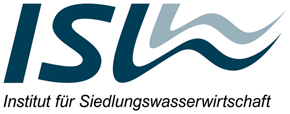
![[Translate to English:] [Translate to English:]](/fileadmin/_processed_/1/4/csm_Schriftenreihe_2018_7_b_cdc061b4ae.jpg)
Helen Feldhaus
Sewage Sludge Treatment Concepts for Industrial Zones Using Vietnam as an Example
Abstract
In many developing countries, among them Vietnam, no environmental awareness has yet been established in the population. However, negative impacts of environmental pollution can already be identified in cities and rural areas and already show effects on the health of the population. This is due to the rapid economic growth, which leads to new industrial zones, increasing production capacities, expanding industries and rising foreign direct investment. The consequence is an inadequate infrastructure, which cannot keep up with the rapid development of the economy. This applies in particular to the field of wastewater treatment, which is why industrially polluted wastewater and sewage sludge cause serious environmental pollution.
For Vietnamese industrial zones sustainable wastewater and sewage sludge treatment concepts do not exist, although these are the basic components for a future-oriented wastewater treatment. Therefore, in this thesis a methodology has been developed that enables the development of sustainable sludge treatment concepts for industrial zones under existing local conditions.
In the early stages of this research work the effects of social, cultural and political aspects have been examined using a situation analysis and the influence of the decision-making stakeholders has been studied. Taking into consideration the five criteria of sustainability, the results of the situation analysis target criteria and alternatives for sludge treatment and utilization for Vietnamese industrial zones have been established.
Existing local conditions in the industrial zone Tra Noc, Can Tho, provided the basis for local adaption and verification of the obtained results. This was followed by experimental tests to describe the process systems of the technologies composting, vermicomposting, drying beds, humification and anaerobic stabilization. Also mass and energy balances were developed for three companies and for the central wastewater treatment plant, which still had been under construction at the time. Recommendations and measurements for regarding construction and operation were derived and will be used for the dimensioning and implementation of the investigated technologies under local conditions.
Based on the developed indicators, the situation analysis and the experimental tests, the selected treatment technologies were evaluated and suitable alternatives were chosen for the investigated case studies. Finally, the transfer potential and the application limits of the established procedure for a sustainable sludge concept are discussed.
Vacancies of TU Braunschweig
Career Service' Job Exchange
Merchandising
Term Dates
Courses
Degree Programmes
Information for Freshman
TUCard
Technische Universität Braunschweig
Universitätsplatz 2
38106 Braunschweig
P. O. Box: 38092 Braunschweig
GERMANY
Phone: +49 (0) 531 391-0
